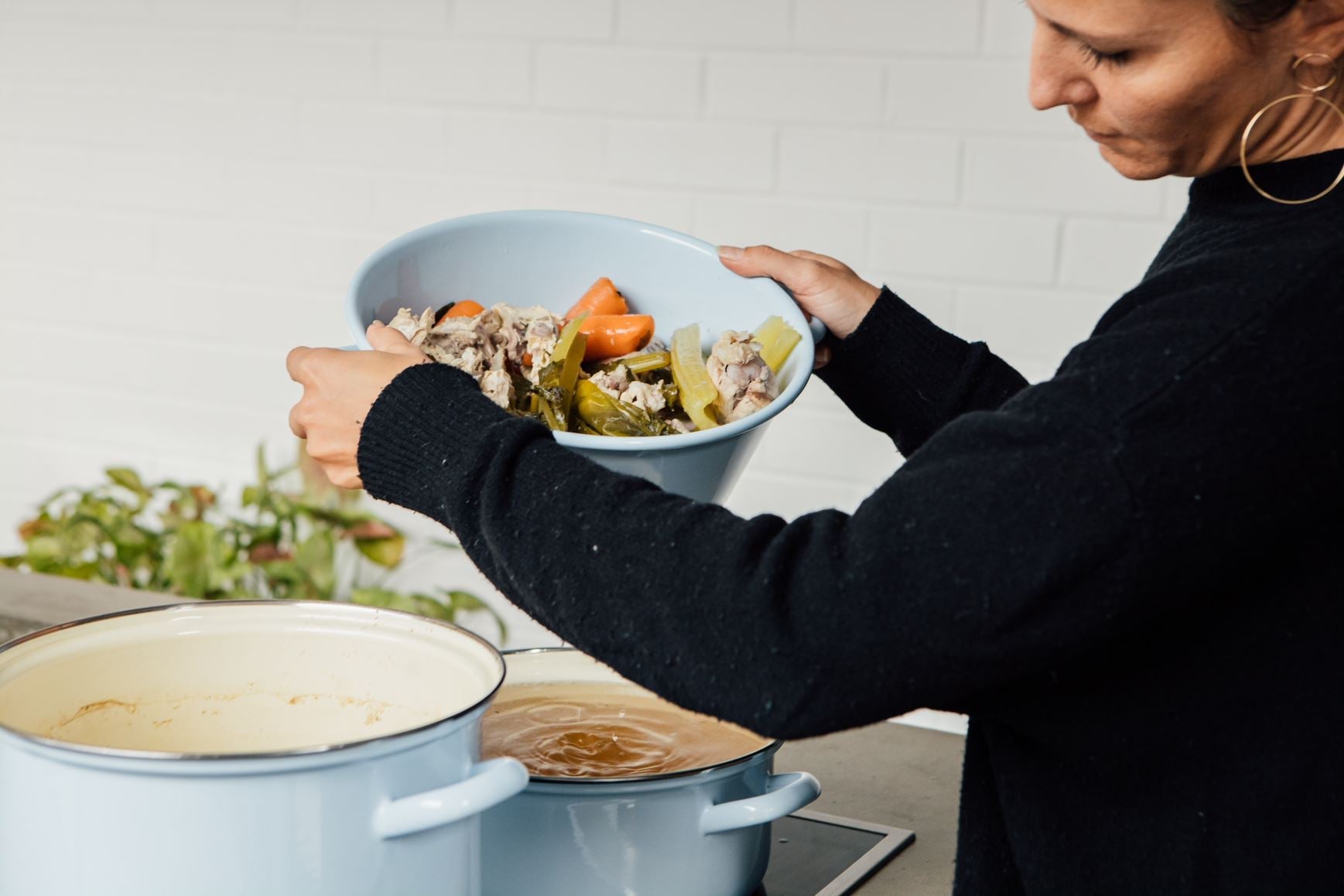Bone broth for infants: A Nourishing Option for Tiny Tummies
Bone broth for infants: A Nourishing Option for Tiny Tummies
Blog Article
The Significance of Healthy Food: Why Bone Broth Is a Fantastic Choice for Infants
Bone broth stands out as a nutrient-dense choice, providing important vitamins and minerals that sustain development and advancement. What are the best methods to present bone broth to your little one?
Nutritional Conveniences of Bone Broth for Infants
When you introduce bone broth to your baby's diet, you're giving a nutrient-dense food that supplies countless health benefits. Packed with vital minerals and vitamins, bone broth includes calcium, magnesium, and phosphorus, which sustain your baby's growing bones. It's also rich in collagen, aiding in the advancement of healthy skin, joints, and connective tissues.
Furthermore, bone broth is a superb resource of amino acids like glycine and proline, which play a significant duty in general development and muscle advancement. These nutrients help promote a strong immune system, establishing a solid structure for your baby's health and wellness.
Additionally, bone broth is easy to digest, making it a mild option for your little one. By incorporating this wholesome food right into their dishes, you're ensuring they obtain necessary nutrients essential for their general wellness. So, proceed and make bone broth a staple in your infant's diet regimen!
Just How Bone Broth Sustains Food Digestion
Bone broth is packed with essential nutrients that can really profit your child's digestion. It promotes intestine health and aids with nutrient absorption, making it an excellent enhancement to their diet. By integrating bone broth, you're setting the phase for a much healthier digestion system.
Nutrient-Rich Structure
One of the most nutrient-rich foods you can present to your infant's diet plan is bone broth, which is loaded with necessary minerals and amino acids that support healthy digestion. Rich in collagen, bone broth aids reinforce your infant's intestine lining, making it less complicated for their body to soak up nutrients. By including bone broth right into your child's dishes, you're giving them a wholesome food that nurtures their gastrointestinal system properly.
Promotes Digestive Tract Health And Wellness
As you introduce bone broth right into your baby's diet regimen, you'll discover it not just nourishes yet additionally advertises gut health effectively. Rich in jelly, bone broth helps calm the gastrointestinal system, minimizing inflammation and supporting a healthy gut cellular lining. Furthermore, the amino acids discovered in bone broth, such as glycine, help in digestion and can assist avoid common tummy difficulties.
Aids Nutrient Absorption
Presenting bone broth not just sustains digestive tract health and wellness yet likewise plays a considerable role in aiding nutrient absorption. When you offer your baby bone broth, you're supplying a rich resource of minerals and amino acids that boost their digestion processes. The gelatin in bone broth assists to soothe the gut cellular lining, boosting its capability to absorb important nutrients.
Reinforcing the Immune System With Bone Broth
:max_bytes(150000):strip_icc()/275984-chicken-bone-broth-DDMFS-KH-4x3-e86adbd246dc4180a9c62fdb349249f3.jpg)
Furthermore, bone broth has glycosaminoglycans, like glucosamine, that can improve the immune system's capability to work successfully. This indicates it not just aids in constructing defenses however also help in recovery from illnesses. By integrating bone broth into your child's diet, you're offering a natural source of nutrition that advertises wellness. So, think about making bone broth a staple in your baby's dishes, as it can play an important role in their immune wellness and development.
Easy Ways to Incorporate Bone Broth Into Child's Diet regimen
Integrating bone broth right into your baby's diet plan can be easy and satisfying. Start by blending a percentage of bone broth into pureed vegetables or fruits. This adds flavor and nutrients without overwhelming your little one. You can also utilize bone broth as a base for soups or stews that you get ready for the household, ensuring your child obtains a preference of delicious, healthier meals.
One more alternative is to offer bone broth by itself. Warm it up and supply it in a sippy mug or tiny bowl-- it's an excellent way to present brand-new tastes. If your infant delights in grains, think about cooking rice or quinoa in bone broth rather of water for added nutrition. Lastly, you can freeze bone broth in ice trays, making it easy to add a dice to various recipes whenever you want. These approaches will certainly aid your child enjoy the benefits of bone broth easily!
Homemade vs. Store-Bought Bone Broth: What to Select
Which is better for your infant: homemade or store-bought bone broth? Self-made bone broth see supplies you full control over the ingredients. You can choose top notch bones, organic veggies, and natural herbs, ensuring your baby obtains one of the most nutrients without additives or preservatives. Plus, making it at home can be a rewarding experience, permitting you to bond with your infant while preparing wholesome food.
On the other hand, store-bought choices are convenient and save you time. Nevertheless, they typically contain chemicals and might not match the depth of taste and nutrition you obtain from homemade broth. If you select store-bought, look for brand names that are organic and totally free from additives.
Inevitably, if you have the time and sources, homemade bone broth is the exceptional option for your baby's wellness. If you're short on schedule, choose a top quality store-bought option as a back-up.
Age-Appropriate Bone Broth Offering Pointers
As your infant expands, it is essential to tailor bone broth offering tips to their developing stage. For infants around 6 months, start with a couple of does of diluted bone broth. Mix it with water or breast milk to make it easier for them to digest. As they end up being accustomed to flavors, you can progressively introduce thicker broth by reducing the dilution.
As soon as your infant gets to around eight months, you can offer it cozy in a sippy cup or include it to soft foods like purees. By the time your child is around a years of age, consider using bone broth as a standalone beverage or blending it into soups and stews. Simply ensure to keep the broth low in salt. Always monitor for any responses, and consult your pediatrician if you have problems concerning introducing new foods. Appreciate this nutritious addition to your infant's diet!
Other Healthy And Balanced Foods to Couple With Bone Broth for Babies
When you're wanting to boost the nutritional value of bone broth for your infant, think about coupling it with nutrient-dense vegetables like carrots and spinach. Entire grain choices, such as quinoa or wild rice, can additionally include texture and fiber. Furthermore, integrating healthy and balanced protein resources like shredded chicken or lentils will certainly complete the dish perfectly.

Nutrient-Dense Vegetables
Nutrient-dense veggies are a superb addition to bone broth for babies, enhancing both flavor and nutrition. Including veggies like carrots, spinach, and sweet potatoes can increase the vitamin and mineral content of your broth.
You can quickly blend these veggies right into the broth or offer them as site link soft, cooked items together with it. This not just presents brand-new tastes however also urges your little one to enjoy a variety of nutrients. By coupling nutrient-dense veggies with bone broth, you're laying the structure for a healthy diet right from the start.
Entire Grain Options

Healthy Protein Resources
Bone broth sets splendidly with numerous healthy and balanced protein resources, better improving your baby's diet plan. Try adding soft, cooked lentils; they're nutrient-dense and packed with healthy protein. You can additionally blend in shredded chicken or turkey, which are easy for your see page child to absorb. If you're looking for plant-based alternatives, consider mashed tofu or pureed chickpeas-- both supply superb protein without overwhelming tastes. Eggs, when introduced securely, are another fantastic choice; they're flexible and loaded with nutrients. Inevitably, assimilating some well-cooked quinoa can include a nice appearance and additional healthy protein. By combining these healthy protein sources with bone broth, you're giving your baby a balanced, nourishing dish that supports their growth and advancement.
Frequently Asked Concerns
Can Bone Broth Reason Allergic Responses in Infants?
Yes, bone broth can create sensitive reactions in infants, specifically if they're delicate to specific ingredients. Always consult your pediatrician prior to introducing brand-new foods and screen for any kind of signs of allergies after feeding.
How Should Bone Broth Be Kept for Babies?
You ought to keep bone broth in airtight containers, either in the fridge for up to a week or in the freezer for as much as three months. bone broth for infants. Constantly thaw it appropriately prior to serving to your infant
Is It Safe to Provide Bone Broth to Premature Infants?
It's vital to consult your pediatrician prior to presenting bone broth to early infants. They'll analyze your baby's certain health and wellness demands and ensure it's risk-free, considering their unique nutritional demands and developmental stage. Constantly prioritize experienced suggestions.
What Are the Signs of Intolerance to Bone Broth in Infants?
When presenting bone broth, watch for signs like fussiness, breakout, looseness of the bowels, or vomiting. If your infant shows any of these responses, it's ideal to get in touch with a doctor before remaining to offer it.
Can Bone Broth Be Utilized as a Dish Replacement for Newborns?
No, you should not make use of bone broth as a meal substitute for babies. It lacks vital nutrients needed for their development. Instead, incorporate it right into their diet plan together with well balanced meals for added nutrition and flavor.
Report this page